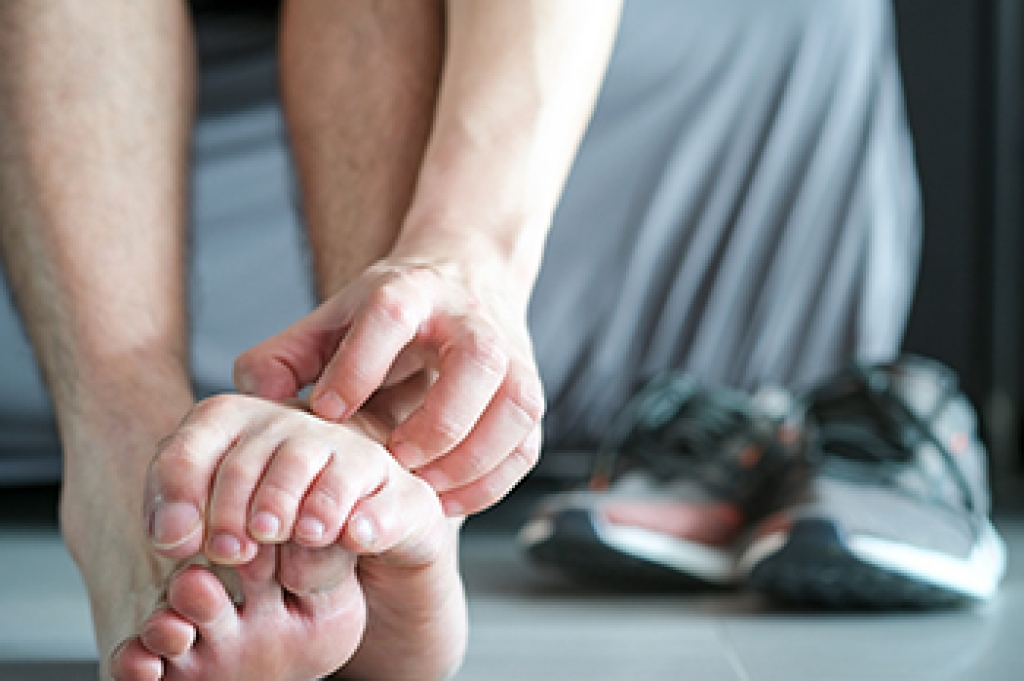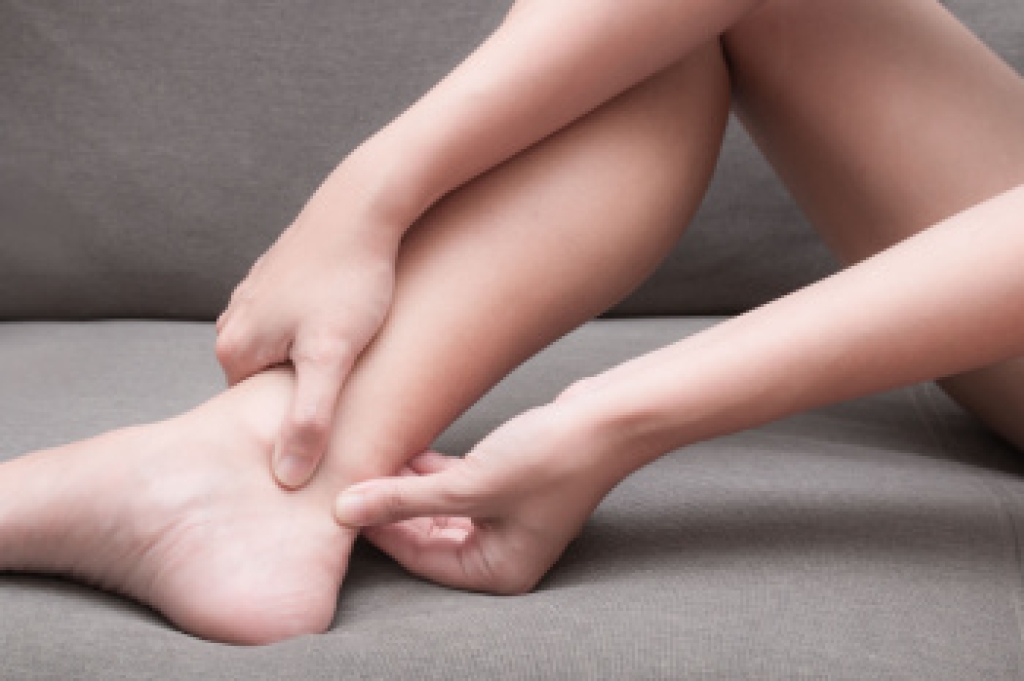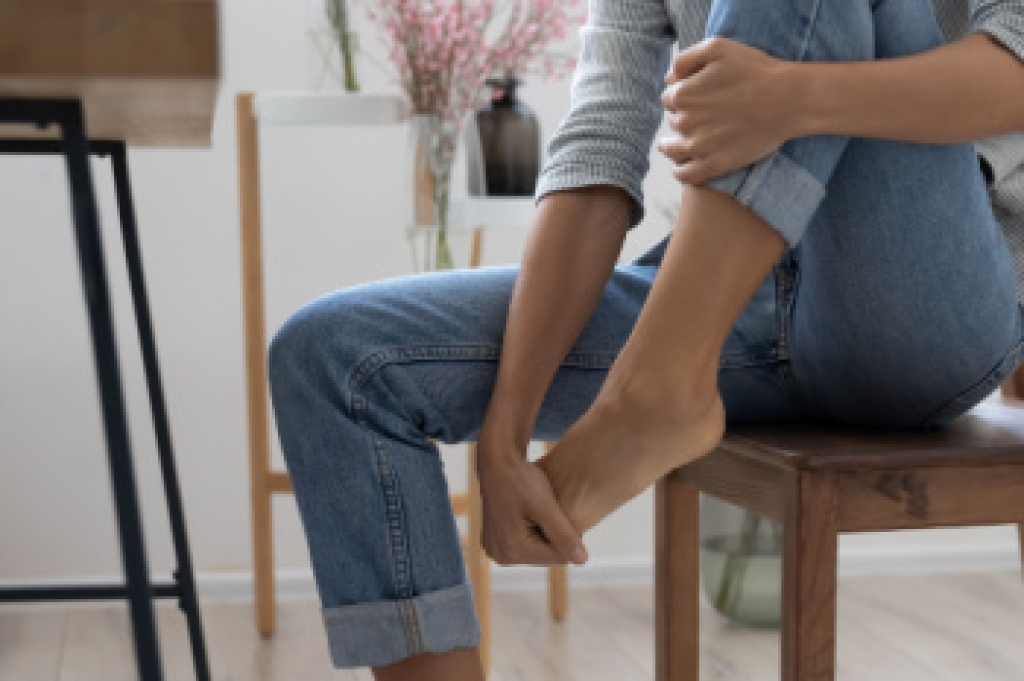
Athlete’s foot is a common fungal skin infection that affects the feet, especially between the toes, and thrives in warm, moist environments. Symptoms may include itching, burning, redness, peeling skin, cracking, and discomfort that can worsen with sweating. Causes often involve exposure to fungi in locker rooms, public showers, or shared footwear. Risk factors include excessive sweating, wearing tight or non- breathable shoes, weakened immunity, and prolonged damp conditions. A podiatrist can help by accurately diagnosing the infection, prescribing effective antifungal treatments, and providing guidance on proper foot hygiene and prevention. Early care can prevent the infection from spreading or recurring. If you notice persistent foot irritation or scaling, it is suggested that you consult a podiatrist who can offer effective treatment solutions, which may include prescribed medication.
Athlete’s foot is an inconvenient condition that can be easily reduced with the proper treatment. If you have any concerns about your feet and ankles, contact Michael Schwartzman, DPM from Illinois and Indiana . Our doctor will treat your foot and ankle needs.
Athlete’s Foot: The Sole Story
Athlete's foot, also known as tinea pedis, can be an extremely contagious foot infection. It is commonly contracted in public changing areas and bathrooms, dormitory style living quarters, around locker rooms and public swimming pools, or anywhere your feet often come into contact with other people.
Solutions to Combat Athlete’s Foot
- Hydrate your feet by using lotion
- Exfoliate
- Buff off nails
- Use of anti-fungal products
- Examine your feet and visit your doctor if any suspicious blisters or cuts develop
Athlete’s foot can cause many irritating symptoms such as dry and flaking skin, itching, and redness. Some more severe symptoms can include bleeding and cracked skin, intense itching and burning, and even pain when walking. In the worst cases, Athlete’s foot can cause blistering as well. Speak to your podiatrist for a better understanding of the different causes of Athlete’s foot, as well as help in determining which treatment options are best for you.
If you have any questions please feel free to contact our offices located in West Chicago, IL and Whiting, IN . We offer the newest diagnostic and treatment technologies for all your foot and ankle needs.




